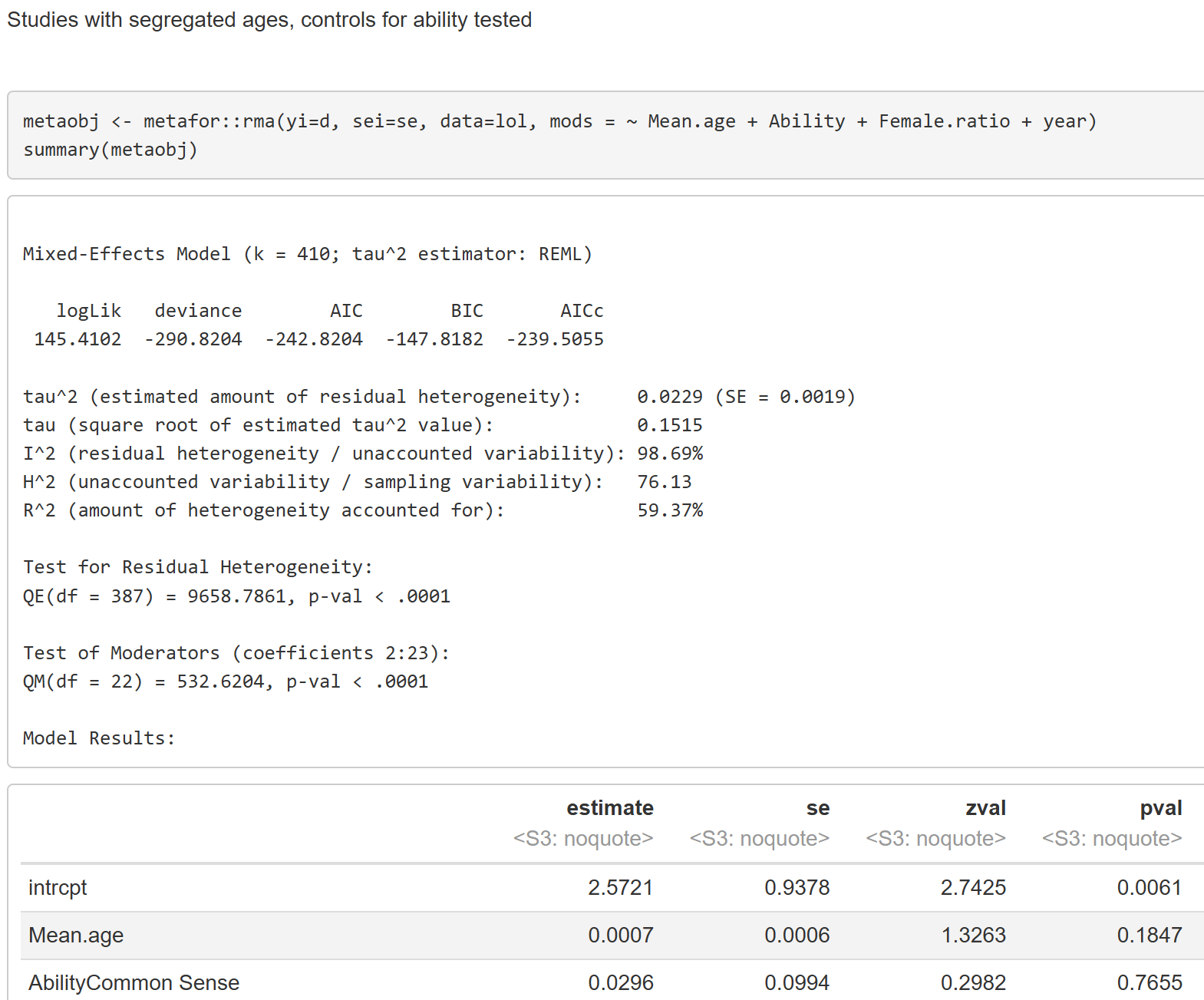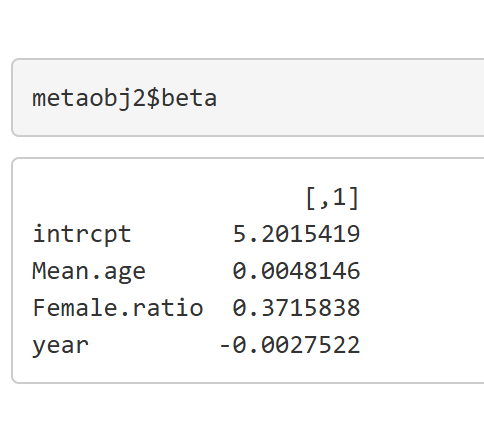Submission status
Accepted
Submission Editor
Noah Carl
Title
Meta-analysis of sex differences in intelligence
Abstract
There is no consensus within the field of psychology on whether there are sex differences in intelligence. To test whether there are, 2,092 effect sizes were gathered that measured differences in mental ability between men and women, representing 15,990,325 individuals. Men scored 2.57 IQ points (95% CI [1.91, 3.23], I^2 = 98.2%, k = 47) above women on general ability tests within adults. Whether this difference is due to general intelligence (g) is not clear, though it is likely. Two of the three methods used to test the developmental theory of sex differences suggested that the male advantage in ability increases with age.
Keywords
intelligence,
IQ,
gender,
sex
Supplemental materials link
https://osf.io/ay3j8/
Reviewer 1: Accept
Reviewer 2: Accept
Public Note
updated osf





